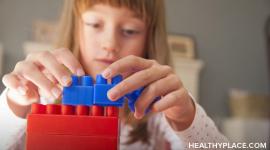Helping Your Child with OCD

Detailed information parents need to effectively help their child with OCD.
- Does my child have OCD?
- What is OCD?
- What causes OCD?
- Can OCD be treated?
- How common is OCD?
- How to get help for my child
- What happens in treatment sessions?
- The parent's role
- Further support and information on OCD
- Recommended reading about OCD in children
Does my child have OCD?
Nearly everyone has occasionally experienced brief runs of repetitive thoughts, urges, or impulses, (like having to check the door is locked several times, or have doubts that they have washed their hands thoroughly enough after handling something dirty). Usually, these can be dispelled easily and so cause little discomfort. For some children, however, these kinds of worries really take a hold, and they find that they get stuck in cycles of doing something over and over again, like washing their hands again and again, counting up to a certain number, or checking something several times to be sure they've done it right. When these kinds of behaviours become a persistent problem and interfere with the child's life, it is know as obsessive-compulsive disorder (or OCD for short). Sometimes it can be hard for parents to tell if some of the things their child does are normal or if there might be a problem. A guide may be how much time your child is engaging in performing their rituals. If it's more than one hour this might indicate a problem. Another guide may be how upset your child gets when he/she carries out the rituals or you try to stop them. If distress is extreme and prolonged this might indicate a problem.
Below are some frequently asked questions about OCD.
What is OCD?
Obsessive-Compulsive Disorder (OCD) is a form of anxiety disorder, which can vary in severity from very mild to severe and can take many different and novel forms. Some children are bothered by upsetting thoughts that they can't get rid of no matter how hard they try; other kids may find they feel compelled to wash or to check things, even though logically they know there is no need. When children are troubled by their obsessional problems they can experience very high levels of anxiety and distress, and they can find the problem takes up a lot of their time and attention. It can seem that the problem is taking over their life, and that there is little time for anything other than worrying, washing, checking or other obsessional behaviours. It can interfere with a child's ability to enjoy life, with their personal relationships and with almost every aspect of their life.
What causes OCD?
Researchers do not completely know why people get OCD, but it's believed there are some reasons that increase the chances of some people getting OCD. For example, children and teenagers who develop OCD often feel very 'responsible' for causing or stopping harm happening to themselves or other people like their mom or dad. This feeling of being 'very responsible' can increase the chances of OCD. Other things that increase the chances of OCD include awful things that go on for a long time (like being bullied) or awful things that happen all of a sudden (such as someone dying). Feeling depressed for a long time can also increase the chances.
Other possible reasons include the idea that the brain works differently in people with OCD and the idea that the chances of getting OCD increase if other family members have it too. But the good news is that no matter what causes OCD, it can be treated with a treatment called cognitive behavior therapy (CBT).
Can OCD be treated?
From the research that has been carried out so far, we know that it is important to treat OCD as early as possible. It's known from previous research that CBT can help people who suffer from OCD. When people do CBT they learn how thoughts, feelings and what they do are connected. They also learn how to deal with upsetting thoughts and feelings. CBT works well for people with many different problems, such as panic attacks, fears like that of spiders or injections, and depression. CBT also works for adults with OCD, and many good experiences working with CBT and OCD in young people have been reported. Recent pilot work by Professor Paul Salkovskis and Dr. Tim Williams on CBT for young people with OCD has been very promising, with the results showing a significant positive effect of CBT treatment.
While many kids can do well with behavioral therapy alone, others will need a combination of behavioral therapy and medication. Therapy can help your child and family learn strategies to manage the ebb and flow of OCD symptoms, while medication, such as selective serotonin reuptake inhibitors (SSRIs), often can reduce the impulse to engage in the ritualistic behavior.
How common is OCD?
Research studies have estimated that between 1.9% and 3% of children suffer from OCD. If you think of a typical secondary school with 1,000 pupils, between 19 - 30 of them may have OCD. Follow up studies have shown that OCD should be treated as early as possible to prevent problems in later life.
How to get help
If you think your child has OCD and you want to get help then the first thing to do is to contact your family doctor. Your doctor can then arrange a referral to child and adolescent mental health professionals in your area who know how to treat OCD.
What happens in treatment sessions?
Once your child has been assessed and it has been decided that this treatment might be helpful, a number of appointments will be arranged. Each appointment can last up to one-and-a-half hours. Your child's therapist may also want to make a home visit at some point during treatment. As well as coming to these appointments, your child will carry out experiments and practice what he / she has learned between sessions. Depending on the therapist, your child may also need to listen to an audio-tape of each session. There will be no 'surprises' during treatment and your child and their therapist will work together. Your child may also need to be brave at times to try out new ways of doing things.
The parent's role
It's important to understand that OCD is never the child's fault. Once a child is in treatment, it's important for parents to participate, to learn more about OCD, and to modify expectations and be supportive. Keep in mind that kids with OCD get better at different rates so try to avoid any day-to-day comparisons of your child's behaviors, and recognize and praise any small improvements. Keep in mind that it's the OCD that is causing the problem, not the child. The more that personal criticism can be avoided, the better.
It's can be helpful to your child to keep family routines as normal as possible, and for all family members to learn strategies to help the child with OCD.
Children and adolescents often feel shame and embarrassment about their OCD. Many fear it means they're crazy. Good communication between parents and children can increase understanding of the problem and help the parents appropriately support their child.
You have to be your child's advocate in school. You must make sure that the child' s teacher and the school administrators understand the disorder.
Use support groups. Sharing common problems with other parents is an excellent way to help you feel that you are not alone and is great support. You also might gain so practical insights about what you can do to deal with the daily problems that come up.
Further support and information on OCD
There are many organizations providing support and information to those with OCD or other anxiety disorders, and to their friends and families. Listed below are a few of the organizations that you may wish to contact:
Recommended reading about OCD in children
Freeing Your Child From Obsessive-Compulsive Disorder by Tamar E. Chansky, PHD. Three Rivers Press, New York.
Sources:
- OC Foundation
- Anthony Kane, MD (parent of ADHD child, ADD ADHD Advances website)
APA Reference
Staff, H.
(2022, January 17). Helping Your Child with OCD, HealthyPlace. Retrieved
on 2026, March 2 from https://www.healthyplace.com/parenting/anxiety/helping-your-child-with-ocd



